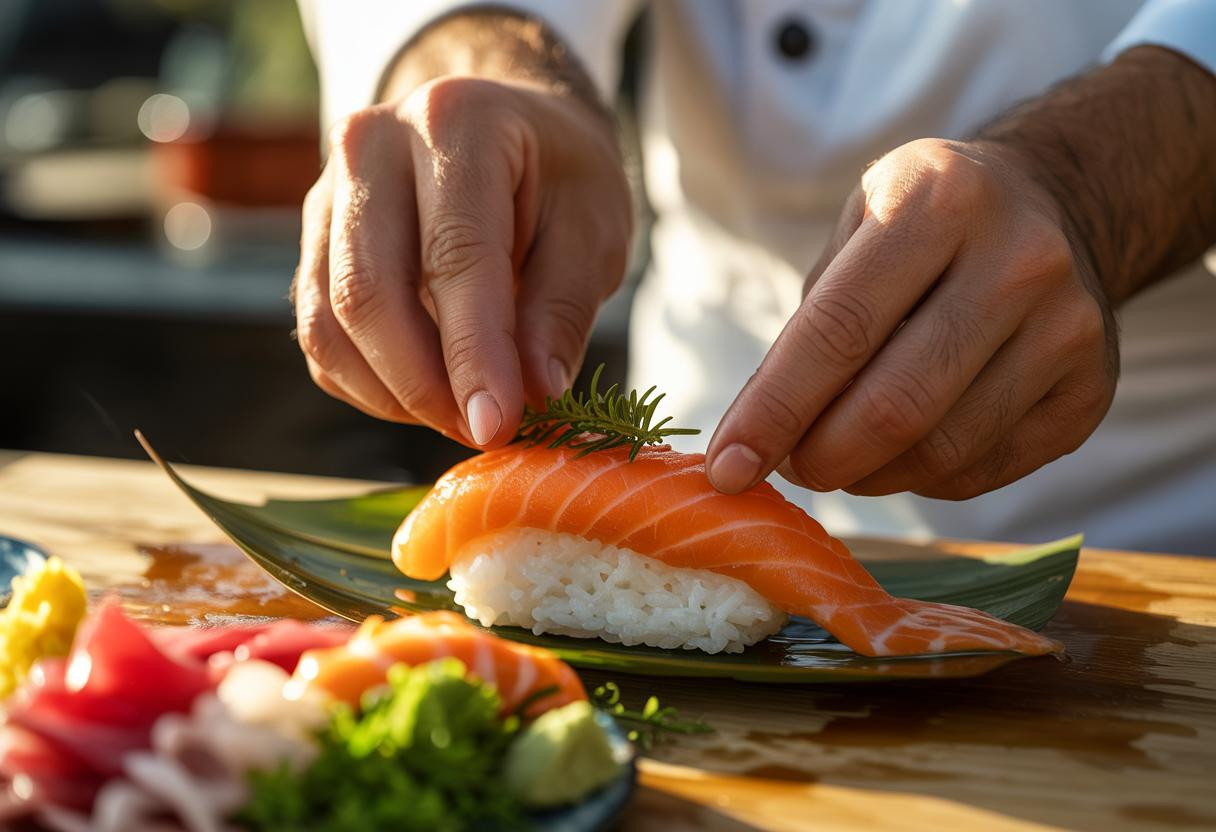When June 18th arrives, millions of people worldwide celebrate International Sushi Day without realizing they’re participating in a $10.52 billion global phenomenon that’s reshaping how we think about food, culture, and tradition. What started as a simple Facebook initiative in 2009 has evolved into something far more significant—a lens through which we can examine globalization, sustainability, and the future of dining itself.
The unexpected origins of a global celebration
International Sushi Day emerged from an unlikely source: social media activism by Chris DeMay, who wanted to encourage people to appreciate this ancient art form. Yet this modern celebration tells a deeper story about cultural exchange that began centuries ago.
Sushi’s journey from 8th-century preservation technique to global sensation reveals fascinating patterns of adaptation. Originally developed as a method to ferment fish in rice, it transformed during Japan’s Edo period when vinegar replaced fermentation. The 1923 Great Kanto Earthquake unexpectedly accelerated its international spread, as displaced sushi chefs relocated worldwide.
Interestingly, Japan maintains its own Sushi Day on November 1st, established in 1961 to coincide with rice harvests. This dual celebration highlights how the same tradition can carry different meanings across cultures—much like how traditional food pairing wisdom varies between regions while maintaining core health principles.
Market forces driving unprecedented growth
The numbers behind sushi’s popularity reveal surprising economic dynamics. The global sushi market is projected to reach $13.35 billion by 2030, growing at 4.84% annually. This growth stems from three key drivers that most people overlook.
Technology integration revolutionizing dining
AI-driven market analytics now predict consumer preferences with remarkable accuracy. Digital ordering platforms have increased average order values by 23% compared to traditional methods. Some restaurants employ sushi robots for consistency, while others use blockchain technology for ingredient traceability.
Health consciousness meets convenience
The rise of plant-based alternatives and home sushi kits reflects changing consumer priorities. Health-conscious diners increasingly seek omega-3 rich options, while busy professionals embrace convenient formats. This trend mirrors the growing interest in fermented beverages and their health benefits, as consumers prioritize functional foods that support wellbeing.
Cultural impact beyond the plate
International Sushi Day catalyzes conversations about cultural appropriation, authenticity, and adaptation. Younger generations gravitate toward fusion styles like California rolls, while traditionalists prefer classic nigiri. This generational divide reflects broader patterns in how we consume and interpret culture.
The celebration also highlights demographic shifts in food industry careers. Many professionals are discovering that culinary entrepreneurship offers unexpected advantages at different life stages, particularly as the industry embraces diverse backgrounds and innovative approaches.
Surprising challenges shaping the future
Climate change poses the most unexpected threat to sushi’s future. Overfishing and ocean temperature changes are forcing dramatic adaptations. Lab-grown fish and algae-based ingredients may become mainstream within five years.
Geopolitical tensions also influence ingredient accessibility. Recent trade disruptions have taught restaurant owners valuable lessons about supply chain resilience, similar to how global food industry market disruptions force businesses to adapt quickly or risk obsolescence.
Practical ways to engage meaningfully
Beyond simply dining out, consider these deeper engagement strategies. Try making sushi at home using sustainable ingredients. Support restaurants that source responsibly. Explore regional variations to understand cultural nuances.
Most importantly, use the day to appreciate the complex web of tradition, innovation, and globalization that brings this ancient food to your local restaurant. Each piece of sushi represents centuries of refinement, cross-cultural exchange, and human ingenuity.
The bigger picture worth savoring
International Sushi Day ultimately celebrates our interconnected world—where a preservation technique from ancient Asia becomes a vehicle for global understanding, economic growth, and culinary innovation. It reminds us that food culture evolves through respectful exchange, creating new traditions while honoring old ones.
